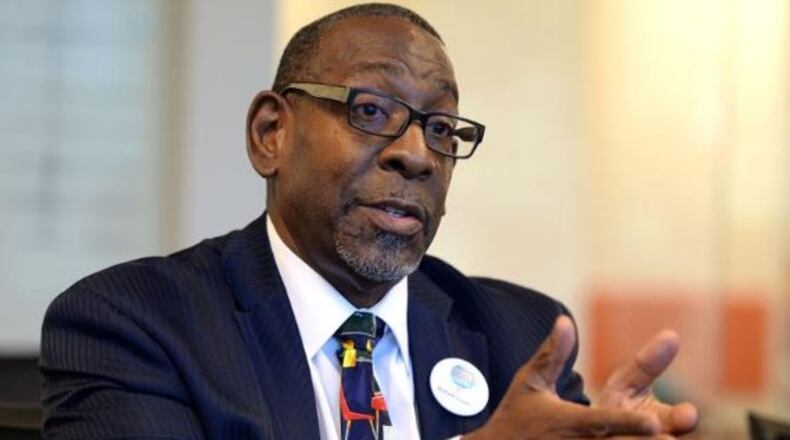The DeKalb County School District community has a wish list more than a mile long for characteristics they hope the next superintendent will possess.
Some current and former leaders caution no one selected will be equipped with a cure-all for challenges faced by students, many of which are brought on by socioeconomic deficiencies in communities across the region.
"That person doesn't have to be perfect," said DeKalb County Board of Education member Joyce Morley, "but someone exceptional and who wants to operate in excellence. Someone who has a pattern and a history of operating in excellence."
Current Superintendent Steve Green was pegged as a visionary when he arrived in metro Atlanta in 2015, charged with increasing student achievement in a district dogged by management scandals and a recent financial deficit as students continued to lag behind the state's average on standardized test scores.
News that Green would step down next summer has prompted questions about the direction the district would take under new leadership. Critics and supporters alike say the last four years did not go as planned largely because little was done to hold Green accountable to have success.
“We definitely need for the school board to take on the role more of holding the superintendent accountable,” said Rebekah Cohen Morris, a DeKalb County parent and former district teacher who now works for Gwinnett County Schools.
She said she had high hopes that Green, as an outsider, would address a culture that allowed for retaliation against employees willing to speak about problems they identified.
“It didn’t feel like there ever was … a shake-up that we needed,” she said. “I want the superintendent to really put an end to this culture of retaliation and intimidation that exists within the district. I know it’s a big thing to ask, but the superintendent can really set the tone for the district.”
Melvin Johnson, who left the DeKalb County Board of Education in 2018, said the board chose Green while seeking someone to address myriad issues. They wanted someone to retool the district's curriculum while maintaining a focus on improving test scores. They wanted the district's schools off state lists related to student failure. They wanted transparency, fiscal responsibility and better collaboration with board members. All while also trying to address issues students contend with — from equity to achievement gaps.
"I think it's naive on our part to think that a person can come in and address all the problems we have in education with a magic wand, that's just not going to happen," he said. "Unless you brought someone in with the type of state and federal programs to address those social issues so that when [students] get to the school, they're ready to learn, and prepared to learn."
The next superintendent, Johnson said, must be aware of obstacles the district’s students face before they make it to class.
“I certainly expect this superintendent to understand our situations and understand all the variables that impact not just DeKalb County Schools because … we can’t control all the variables,” he said. “The public school system … can’t select their students, the neighborhood they come from.”
Several school board members admitted last year to not developing a system to better support — or grade — Green’s performance. Morley said the board and superintendent should have goals based off the district’s strategic plan that look toward addressing student achievement and other goals.
“The superintendent has to be given a directive,” Morley said. “The mandate has to be the strategic plan, with goals based off the strategic plan. We must realize success is not done in big hunks, but small chunks. It takes time.”
Ernest Brown, a parent of DeKalb County graduates who is still active with the school district, said he would like to see an academically focused leader with multitasking abilities, who can both inspire others around him while working to repair damaged relationships and build bridges within the community for more support. He also wants to see more realistic expectations of the district’s leadership, from teachers up to the superintendent.
“A teacher can’t wave a magic wand and overcome a student who comes to school hungry … or make it so they’re going to pass [standardized tests] on the first try,” he said. “It doesn’t mean you stop fighting.”
About the Author
Keep Reading
The Latest
Featured

